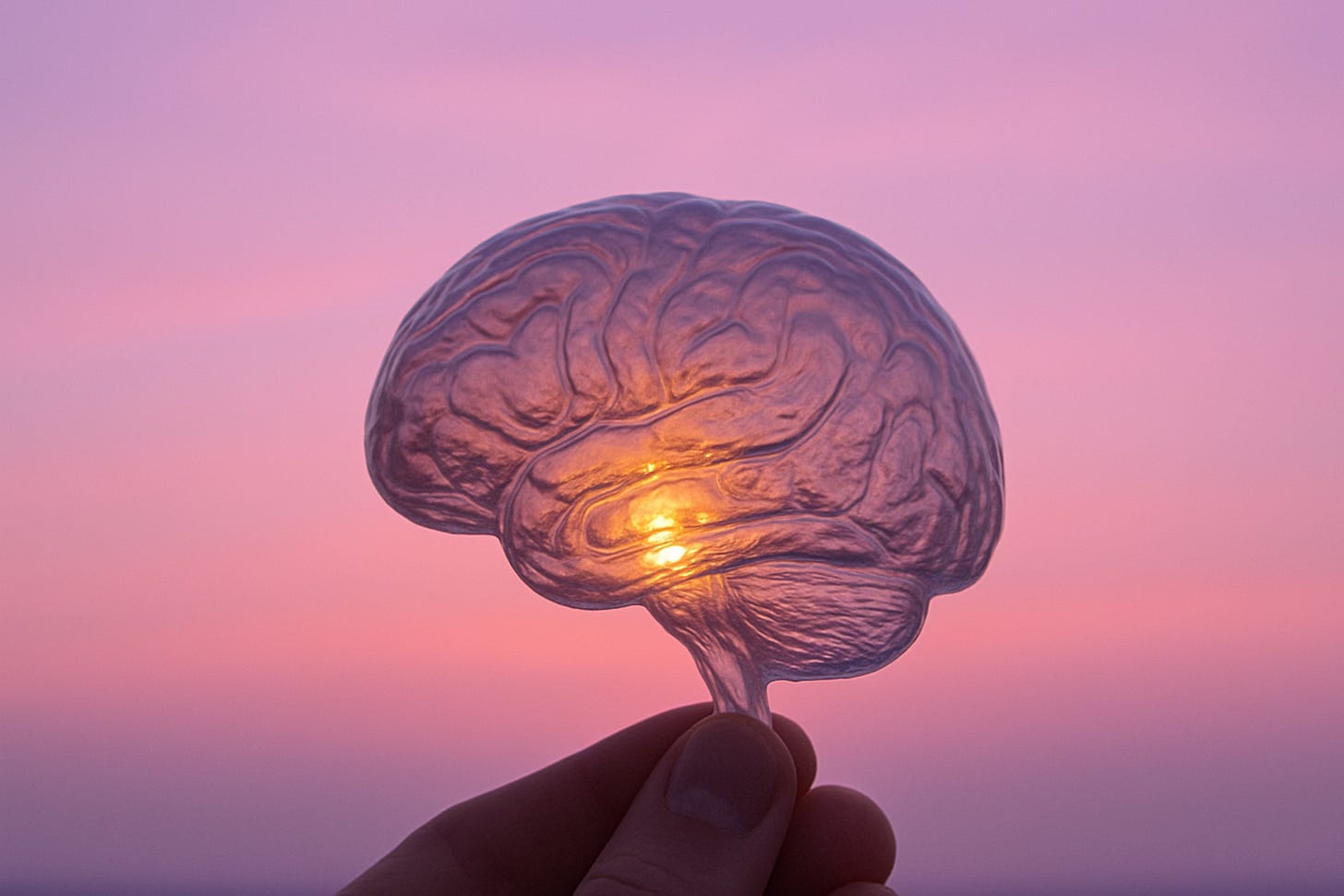“I don’t want to outsource my thinking.”
A few thoughts on the impact of AI on creative thinking.
The latest MIT-led study
The other day, I was invited to an event featuring Maria Luís Albuquerque, former Finance Minister of Portugal and now an EU Commissioner. Her speech was powerful and focused on the need for more political courage. But what stayed with me even more was a brief conversation with a 16-year-old attendee.
When I asked him about his ambitions and what currently sparks his curiosity, he told me how much he loves math and that he may study it after high school. I then asked whether AI tools are used much at his school, and if he uses them himself. His answer surprised me.
“Yes, a lot of people use it,” he said. “But I barely do. I don’t want to outsource my thinking.”
That sentence stuck with me. At such young age, he had already understood something that a recent MIT-led study just confirmed.
Researchers tracked students’ brain activity while writing essays, some with AI help and some without. Those who used ChatGPT showed up to 55 percent less brain connectivity in areas related to thinking and self-monitoring. They also scored lower in creativity, memory, and a sense of ownership. In contrast, students who wrote without AI produced more original and better-remembered work.
The takeaway isn’t that we shouldn’t use AI, but that we should learn how to use it and do so with more intention.
Why your brain needs stored knowledge
One essential ingredient in creative thinking is not just talent, but the depth and variety of information and experiences stored in your long-term memory.
This matters because much of creative thinking happens in the subconscious. Those “aha” moments are not random. They emerge from the knowledge and experiences already embedded in your mind. For the subconscious to connect the dots/thoughts in new ways, it needs data. The richer and more diverse your knowledge and experiences, the more novel connections it can create.
Quick answers, short memory
This is where AI can get in the way. When we get answers too quickly, they often remain only in short-term memory and fade soon after. This happens because we do not engage with the information deeply enough to make it stick.
Take something simple. Imagine watching a duck dip its head underwater. Today, you can ask an AI and get the answer in seconds. But years ago, before smartphones, you might have watched the duck longer, asked someone about it, or looked it up in a book. That small bit of effort and curiosity helped the information stay in your mind.
Struggle, repetition and explaining it in our own words are what help learning stick. And when we’re truly curious about something, even small or random facts are easier to remember. That curiosity acts as a kind of fast track, because it signals to the brain that the information matters. But more on that another time.
Use AI like a teacher (most of the time), not a shortcut
So how can we use AI without letting it replace our thinking? One way is to reframe the prompt. For example:
“What are the reasons ducks put their heads underwater? Don’t give me the answer directly. Help me figure it out by asking questions.”
This way you turn your AI into a tutor. But even better news: if you are using ChatGPT, you can now switch to the new Study and Learn mode under Tools. This setting avoids giving you the answer right away. Instead, it guides you with questions and encourages you to write your thoughts in your own words.
It is a simple yet powerful way to keep your brain more active and engaged, for those who want to protect the storage capabilities. Obviously, it is all about balance, knowing when to use AI for quick productivity and when to slow down for deeper learning and retention.
And that is just the cognitive side. It does not even begin to touch on the broader mental health benefits of exercising your long-term memory and keeping your brain actively involved in the learning process.
—> So, if we want to stay independent thinkers in a world full of instant answers, we need to protect the mental processes that make us original. Like AI, our brains need stored data to generate insight. Not everything should come easily, especially the things we hope to remember.
Curious about collaborating?
Whether it's a keynote on Radical Creativity, a masterclass on exponential technologies like this one, or consulting on future-ready business models, I’m always interested in meaningful collaborations. Explore more at KarimMustaghni.com & www.The-Creativs.com



